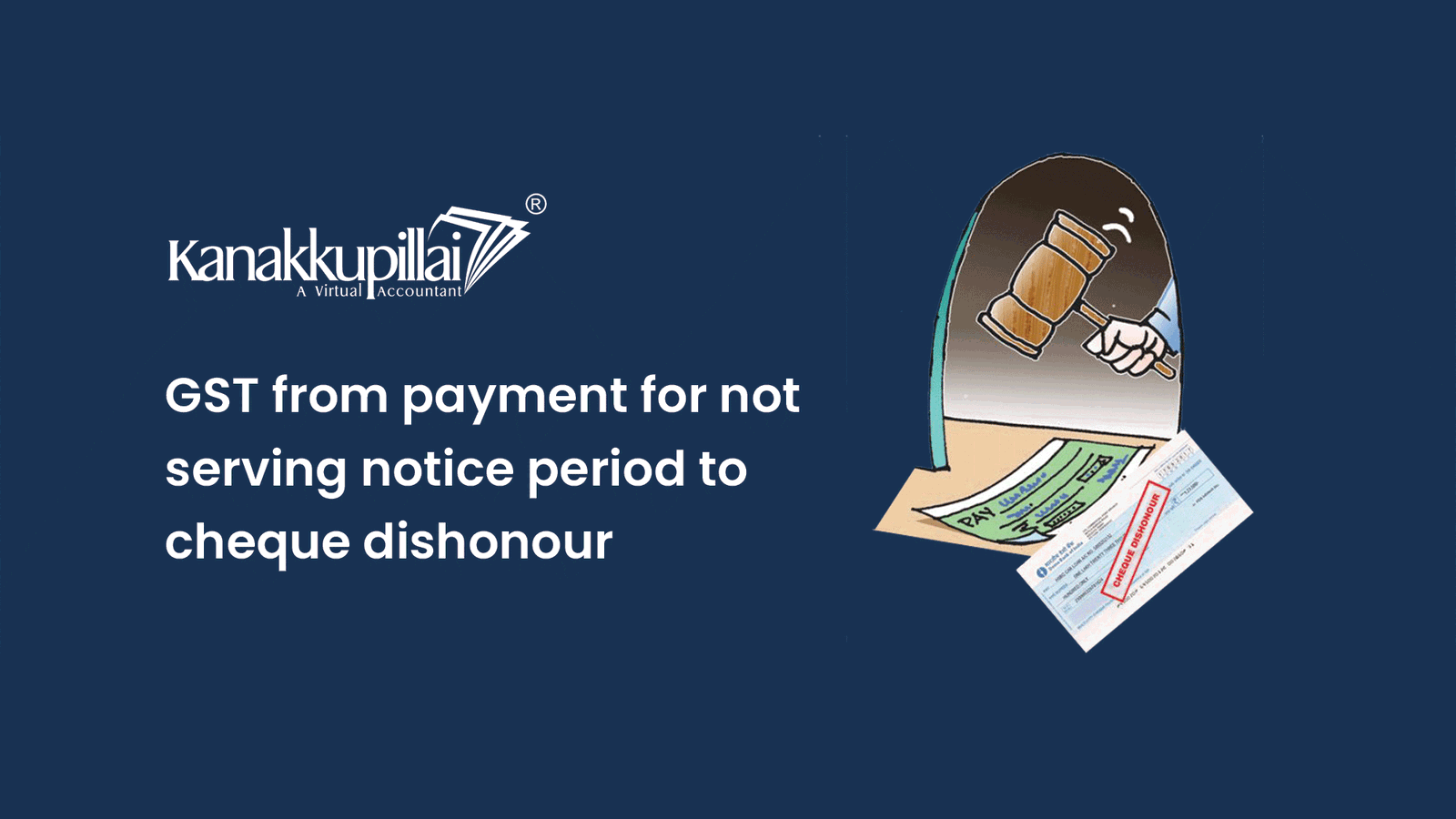Regarding the taxability of GST on liquidated damages, compensation, and penalties assessed for contract violations, the CBIC recently released a new circular to clarify things. Since the service tax was imposed, this issue has attracted attention and been litigated. The problem is clear from examples like how tax regulations interpret payments made to an employer by an employee who did not give the required amount of notice. Under the GST regime, inquiries like, ‘can the payment be considered consideration or taxable value’, ‘is it taxable under GST’, etc. are still made.
According to CESTAT judgments, service tax does not apply to these liquidated damages for breach of contract. The advance decisions, however, have always regarded payments as taxable at 18% GST under the GST law by treating them as a service compensation for tolerating conduct. Many taxpayers under the GST regime have been able to argue that the current interpretation conflicts with the position taken by the former tax regime due to the gap between the two tax laws.
Many of these difficulties are clarified in the most recent GST Circular 178/2022, published on August 3, 2022. It includes the situations listed below:
- Liquidated damages are paid
- Employees’ obligation to pay a bond or notice fee
- A fine for returning a cheque in bad faith
- The collection of fines for breaking the law
- Reimbursement for canceling coal blocks
- Late fees for a failure to pay a debt on time
- Collection of toll fees
- Power-generating firms get fixed and variable electricity fees from the State Electricity Board (SEB), DISCOMS, or consumers.
- Cancellation fees for train, plane, or hotel reservations are charged to travelers.
A separate contract between the parties must contain both consideration and an obligation. A straightforward cash exchange from one person to another does not qualify as payment for taxable activity.
By classifying actions as bundled services, they will be taxed at the GST rate applicable for the main supply for actions like paying late fees, cancellation charges for energy bill delays, or canceling reservations for lodging or train tickets. For instance, the cancellation fees for hotel reservations are subject to the same GST rate as hotel reservations.
Businesses receive much-needed clarification on tax treatment when managing agreements and contracts.
They can assess their situation, deposit underpaid taxes, or request a refund for overpaid taxes. Furthermore, any ongoing legal disputes involving these issues can be resolved quickly. The relief for taxpayers who paid GST on liquidation damages but later obtained a refund to settle their case amicably is not mentioned in the Circular. It makes it clear that paying a fine for dishonoring checks is exempt from GST because it is a punishment for refusing to put up with an act. The same applies to compensation for canceling coal blocks—it is exempt from GST.
A single tax, referred to as the GST or the Goods and Services Taxes, is applied to delivering services, products and goods from the point of manufacture to the final consumer. GST creates a single indirect tax for the country, transforming India into a shared market.
GST is advantageous for the government, consumers, and businesses, as well as for industry and commerce. The ten advantages of the Goods and Services Tax are presented here (GST).
- Simple compliance:
The GST regime in India would be built on a strong and comprehensive IT system. All taxpayer services, including GST registrations, returns, payments, etc., would be accessible to taxpayers online, making compliance simple and open.
- Uniformity of tax rates and structures:
Tax rates and structures will be uniform nationwide thanks to GST, which will also increase business certainty and make it easier to conduct transactions. In another way, we can say that, regardless of the place or location of a business, GST would make conducting business in the nation tax easy and neutral.
- Elimination of cascading:
To ensure that there is little tax cascading, a system of seamless tax credits that extends across the value chain and across State lines must be in place. This would lower unintentional business expenses.
- Gain for exporters and manufacturers:
The cost of locally produced services, goods and products would decrease by including significant Central and State taxes in GST, complete and thorough set-off of input services and goods, and the gradual elimination of Central Sales Tax (CST). This would raise exports made by India and improve the competitiveness of Indian goods and services on the international or global market. The homogeneity or uniformity of tax laws and procedures in the nation will also majorly lower the cost of compliance.
- Higher level of competition:
The ability of trade and industry to compete would gradually increase with reduced transaction costs. According to the World Bank, the Goods and Service Tax (GST) and the elimination of interstate checkpoints are the two most important reforms that could increase India’s manufacturing sector’s competitiveness.
- Better leakage controls:
GST will improve tax compliance because of a strong IT infrastructure. The seamless transfer of input tax credits from one level to the next in the chain of value addition makes it possible for the GST to have a built-in mechanism to encourage businesses to pay their taxes on time.





